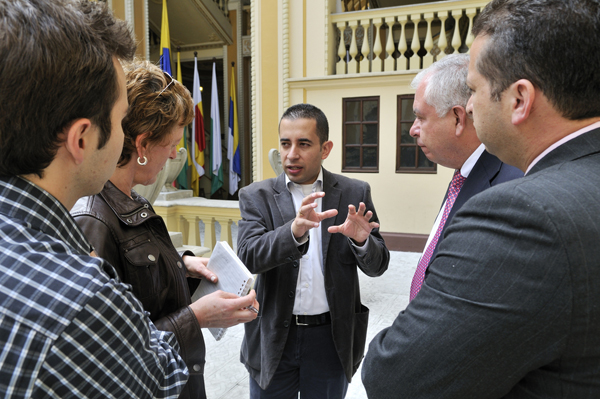Administration and integrity

GIZ works to ensure that administrations work efficiently and with integrity to provide citizens with access to public services.
In many countries, public administrations are under-performing. Their work is not transparent, efficient or effective. In many cases, this is because they lack clear structures and processes or are not motivated to use such processes and structures. Many bodies also face a shortage of staff. Corruption is a major problem, affecting poor and disadvantaged populations in particular. These groups cannot afford to pay the bribes needed to access public services.
GIZ uses a range of approaches to enhance the performance of public administrations. The main focus is on improving services for citizens.
- GIZ advises partner administrations on organising their processes more effectively, using their resources more efficiently and delivering services more rapidly.
- It supports human resources departments in making better use of their capacities and improving the skills of administrative staff.
- It works with business schools to design modern courses of study and instigate compliance and integrity management. This is intended to stamp out nepotism and corruption. GIZ is also strengthening anti-corruption bodies and working to ensure effective anti-corruption legislation.
- It promotes the introduction of registers of births, marriages and deaths, which are a prerequisite for recording all citizens’ details from birth onward, thereby ensuring their entitlement to public services.
- GIZ also supports statistical agencies in collecting and analysing data, as policies for sustainable development can only be planned based on a sound foundation of data.
- Digitalisation is a crucial crosscutting issue for administrative bodies. It poses major challenges but is the prerequisite for greater transparency and efficiency. GIZ therefore supports the introduction of e-recruitment systems, e-dossiers, innovative data collection methods, automated processes and online platforms.
- Major administrative reforms require systematic planning. This relates, for example, to states seeking to accede to the EU. GIZ supports them in planning a reform strategy and in building the necessary capacities and coordinating bodies. Finally, it works with partner countries to develop openings for the systematic involvement of civil society in the reforms.